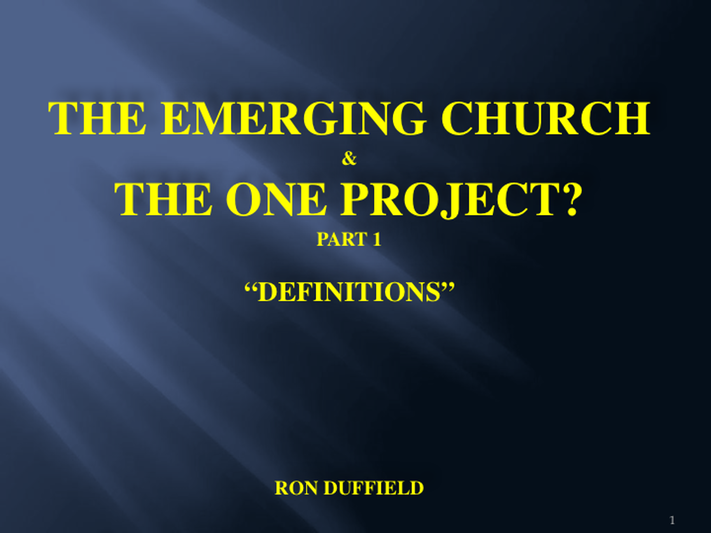
My study into the emerging church started when a pastor back East asked if I knew anything about “The One Project”. When I began to study into the history of the Project and those who started the movement, I was led to enquire about the Emerging Church and its teachings and history. I found that it deals with much more than just “spiritual formation” and “centering prayer.”
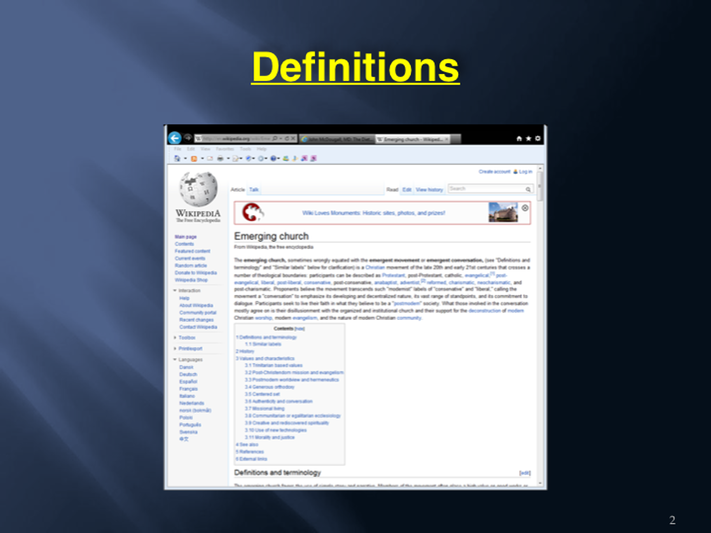
The Emerging church is described in Wikipedia, taking 10 pages with 71 references. It is a good summary based on many of the books written by those in the movement itself. All of the following quotes from this web site are taken form quotes of those in the Emerging Church movement, or those who have studied into the movement in an academic research setting. There is much more to the Emerging Church movement than Contemplative Prayer and Spiritual Formation.
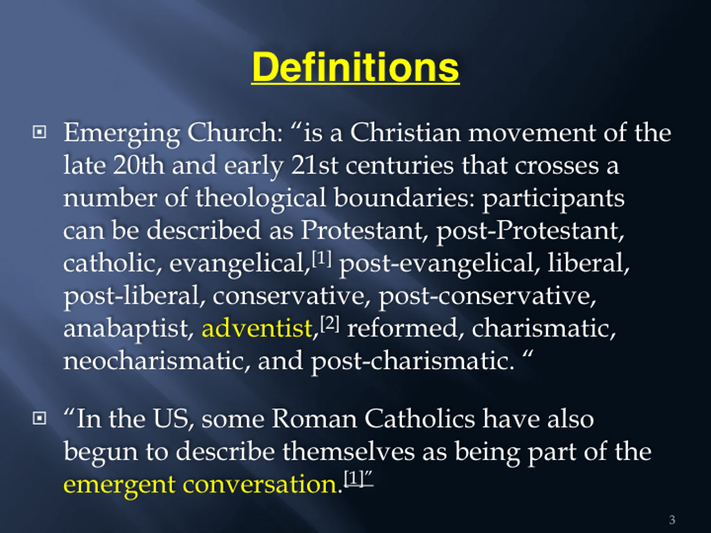
“While emerging is a wider, informal, church-based, global movement, Emergent refers to an official organization, the Emergent Village, associated with Brian McLaren, and has also been called the ‘Emergent stream.’” Adventist here refers to Seventh-day Adventist. The reference is taken from Ryan Bell’s blog, pastor of the Hollywood Church who is very much a part of the Emerging Church movement.
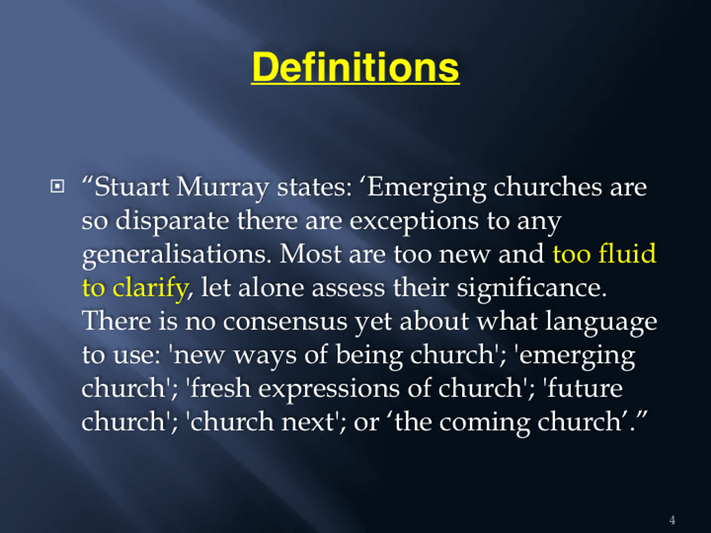
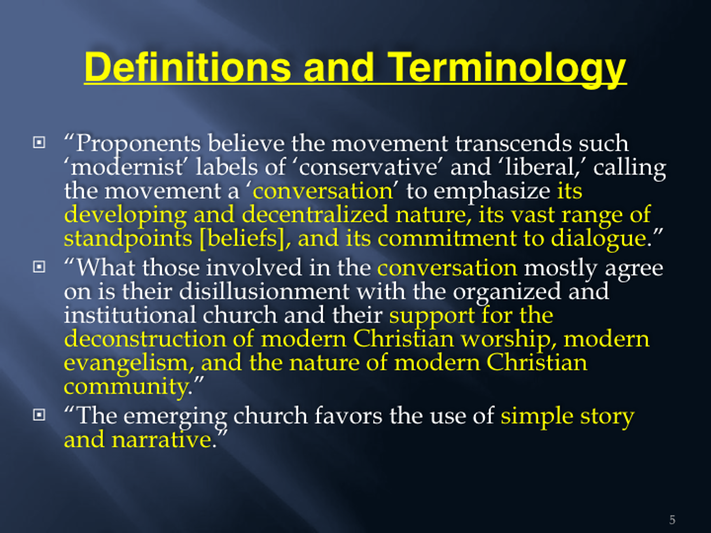
Conversation, simple story, narrative and missional, are all catch phrases of the Emerging Church. Some of the things they stand for are not wrong in and of themselves, like feeding the poor, helping the orphans, standing up for the underdog, etc. But for true Christianity, these activities are not an end in themselves. We will see later how Ellen White says “The leaders would teach that virtue is better than vice, but God being removed, they would place their dependence on human power, which, without God, is worthless.”
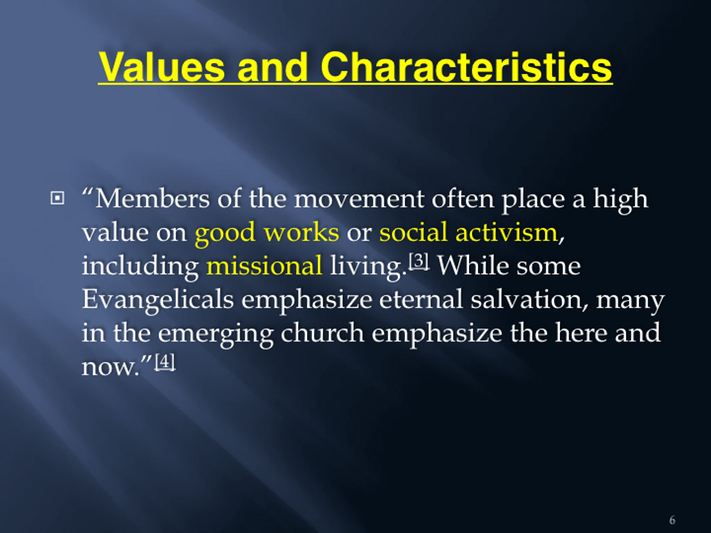
If we are living for the future, it should effect the way we are living now.
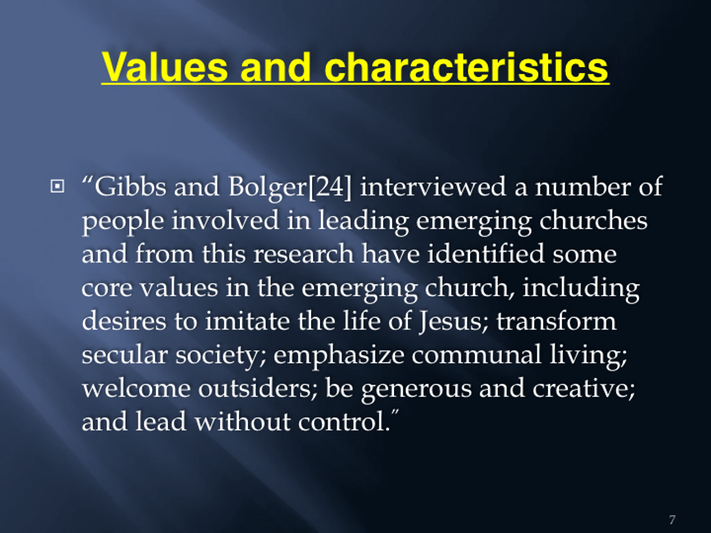
On the surface this sounds good, perhaps like the French revolution. Much of the sentiment behind it was rebelling against false forms of religion in Europe during the period of the dark ages. But there were also elements of rebelling against God and any restraint against human passion.
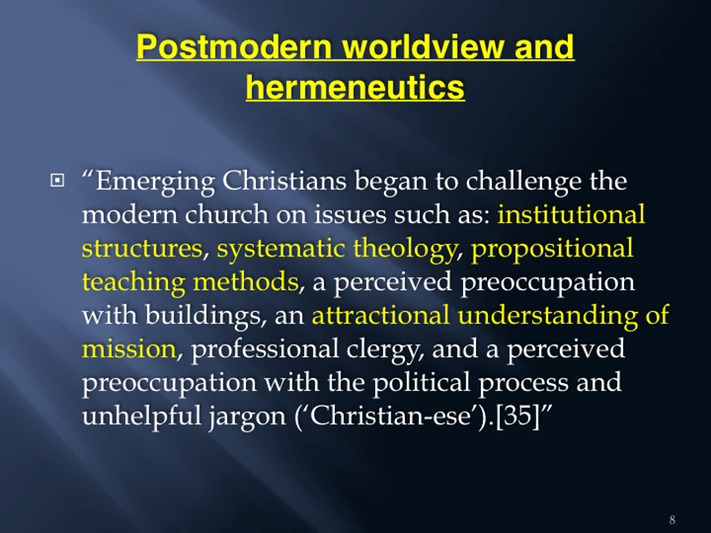
Propositional teaching methods would be preaching with the assumption that you had truth to share or knew the meaning of a certain passage and where presenting it as such. “Attractional understanding of mission” means seeking to attract others to Jesus by telling them that we are sinners and in need of a savior and that Christ is the only way.
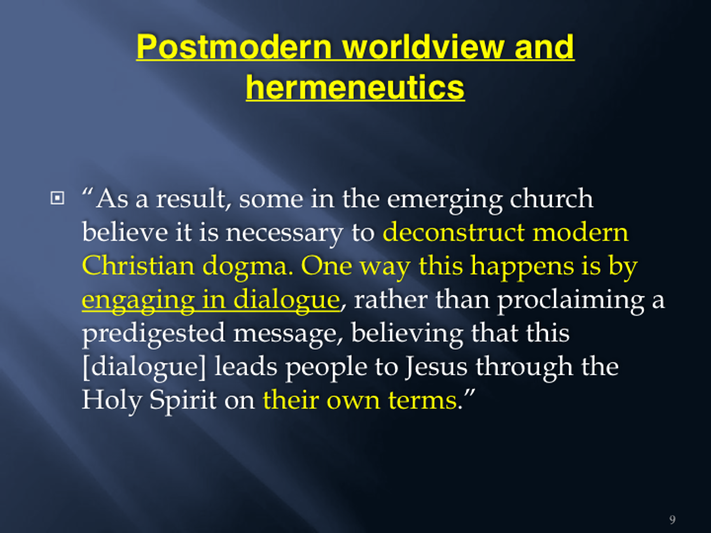
This is Key. So you hold a weekend gathering. Have some general presentation, and then facilitate dialogue. So Bible truth is not proclaimed but dialogue encouraged and “holy spirit” leads people to “Jesus” on “their own terms.” Yes, God wants us to come and reason together, but based on His truth not our “terms”. Those in the emerging church movement have their own “Dogma.”
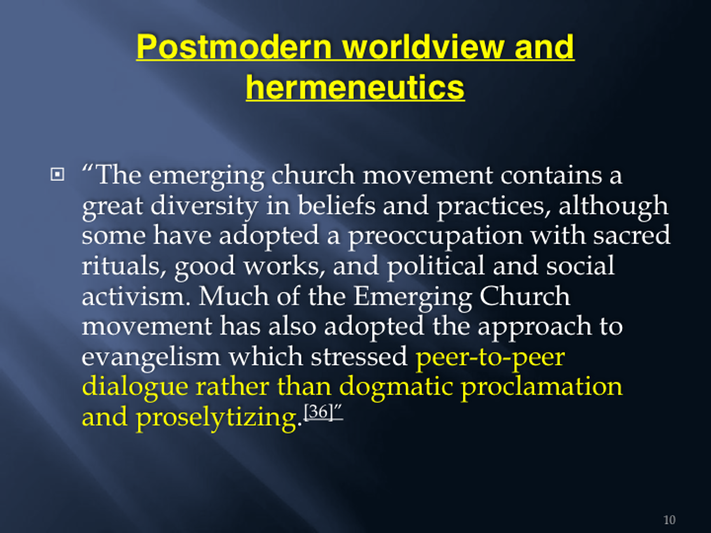
Evangelism as required by the third angel’s message would be considered “proselytizing.”
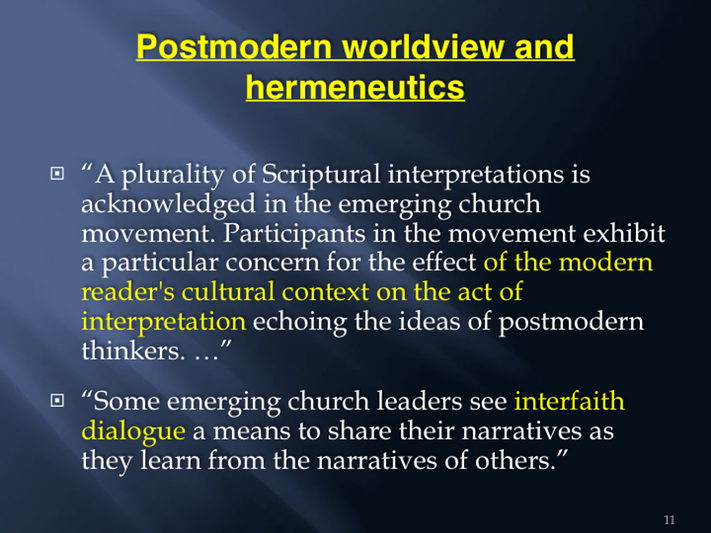
Not only does each individual interpret the Bible based on his own culture but then these ideas are shared with others. Very ecumenical in nature. “Let none cherish the idea that special providences or miraculous manifestations are to be the proof of the genuineness of their work or of the ideas they advocate. When persons will speak lightly of the word of God, and set their impressions, feelings, and exercises above the divine standard, we may know that they have no light in them.” (MB 146)
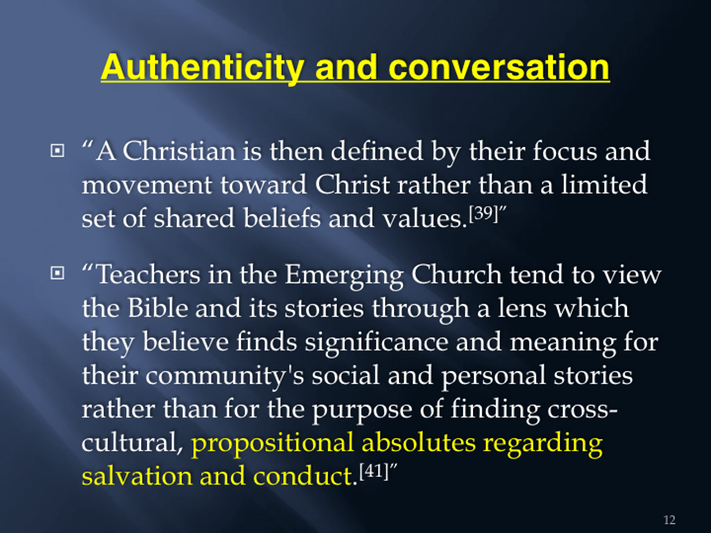
Who defines “movement toward Christ” and which “Christ” are we talking about.
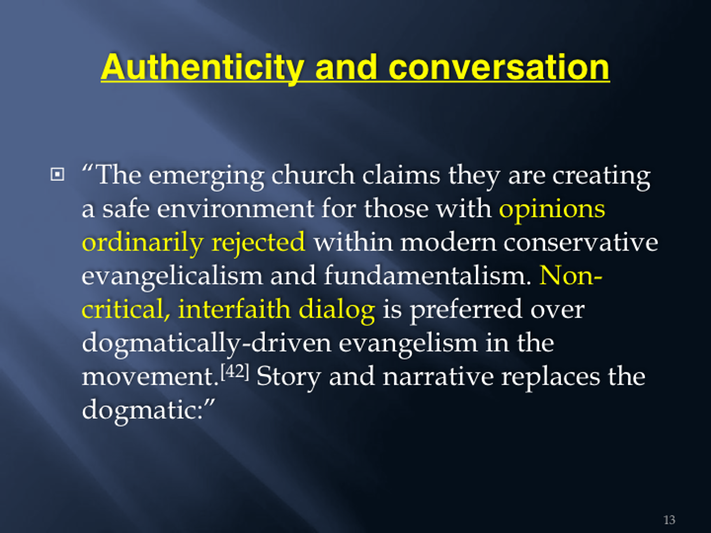
What do they mean by non-critical. Then people can gather and dialog and have a “conversation” in a safe environment and no one can disagree.
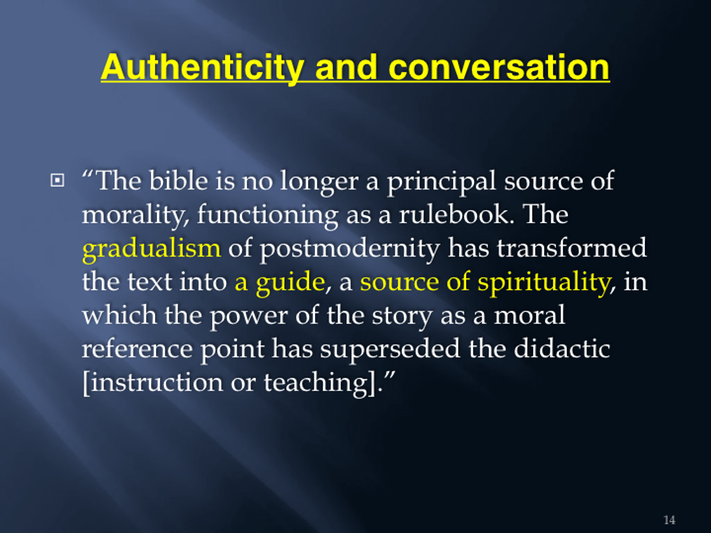
The quote above continues: “Thus the meaning of the Good Samaritan is more important than the Ten Commandments - even assuming that the latter could be remembered in any detail by anyone.”
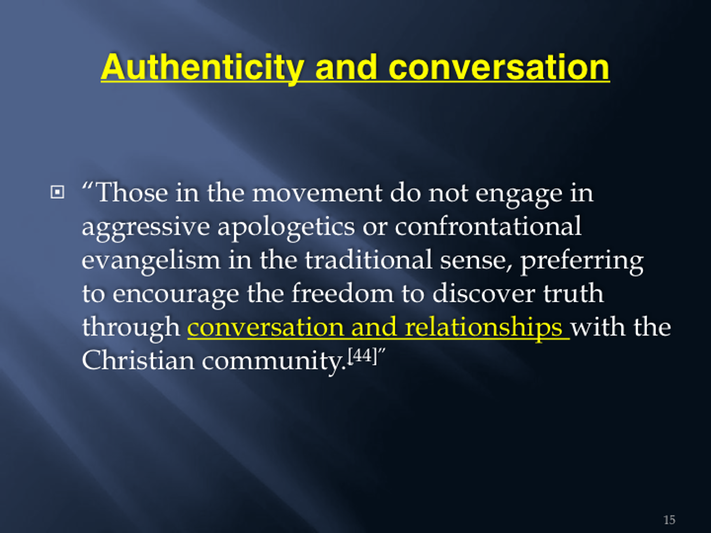
Presenting the idea that there is a broad way and a strait way would be classified as “confrontational evangelism”.
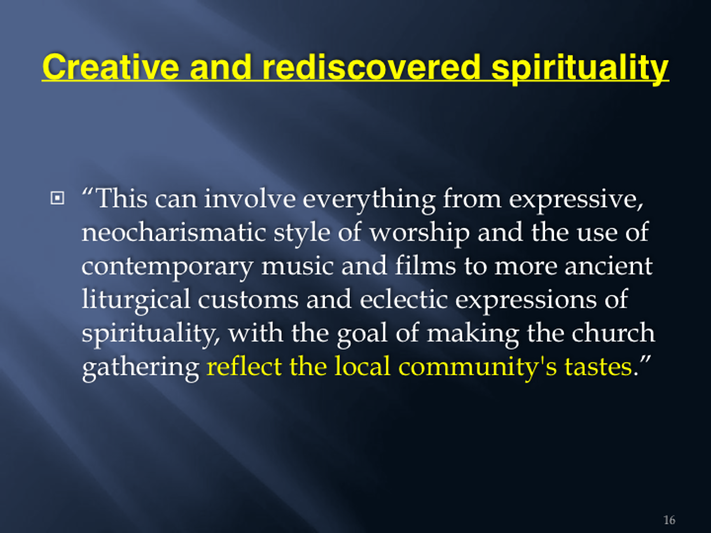
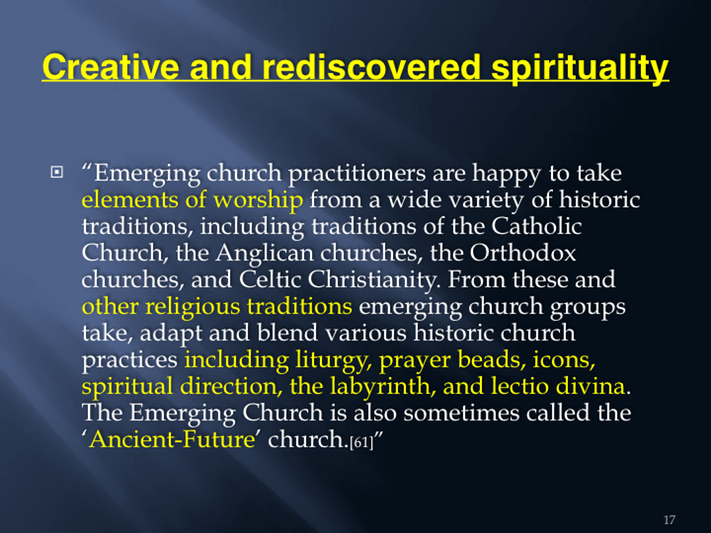
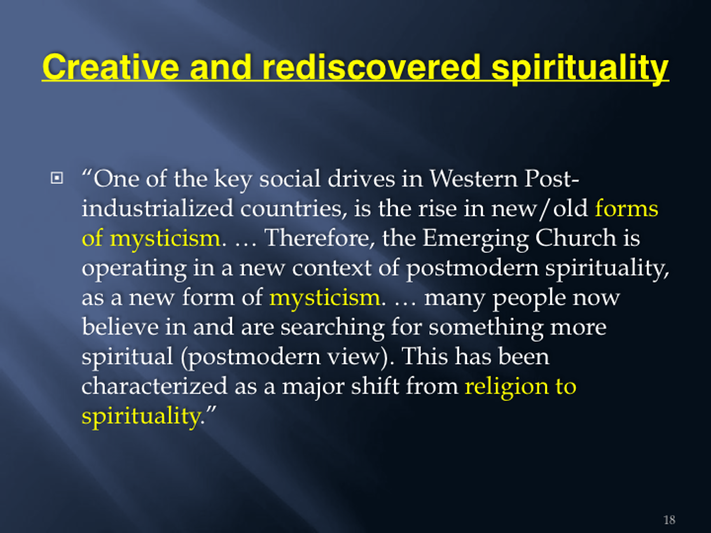
Religion being a creed or set beliefs, spirituality more of an experience not necessarily based on doctrine.
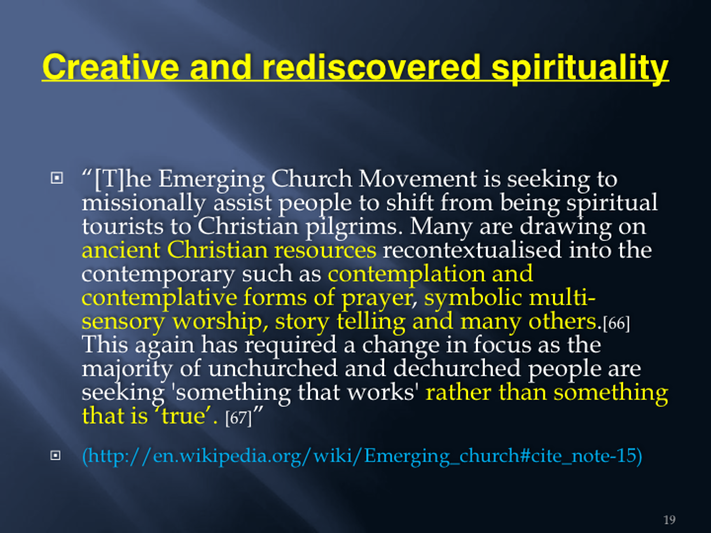
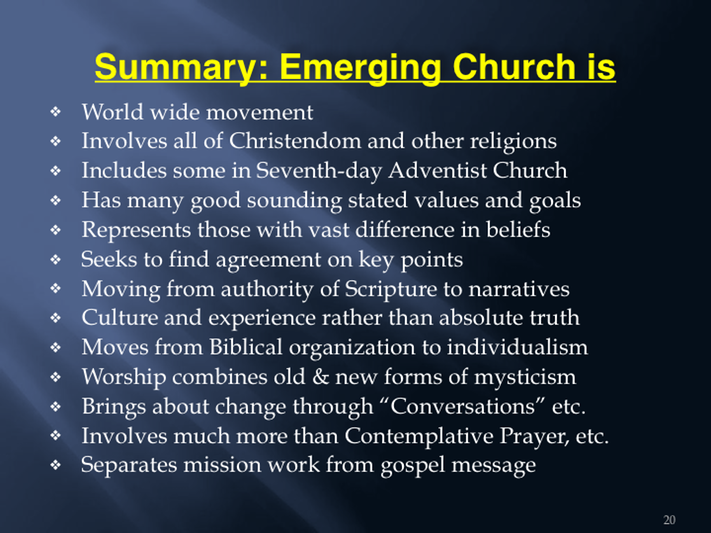
Read Great Controversy chapter 27 “Modern Revivals”, and Chapters 29 -34: “The Origin of Evil,” “Enmity Between Man and Satan,” “Agency of Evil Spirits,” “Snares of Satan,” “The First Great Deception,” “Can the Dead Speak to Us? (Spiritualism).” These chapters give us insight into what is taking place today in the world and in our church.
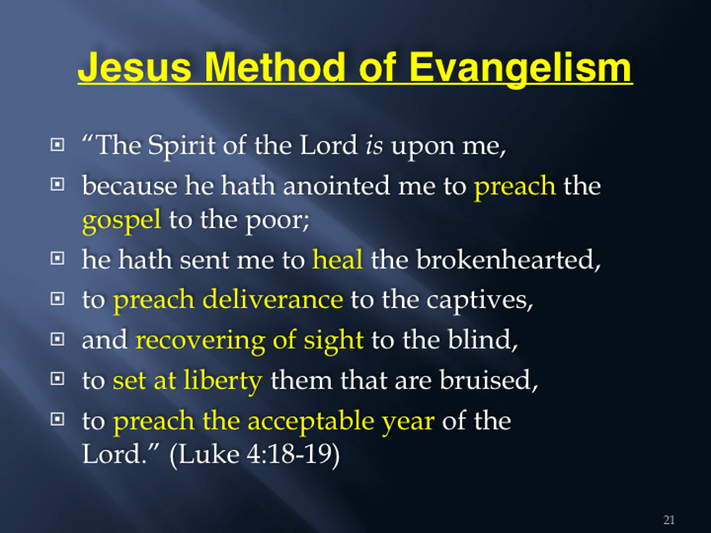
We will look at just one contrast between Emerging Church ideas and Jesus’ Methods.
Contrast what Bible teaches with Emerging Church idea of mission/Evangelism
Luke 4:18-19 Jesus was preaching at Nazareth, quoted from Isa. 61:1-2.
[1]Didn’t say Lord sent me to have “conversations”. Jesus did have conversations. Read John 3 and 4, women at the well and Nichodimas. Didn’t talk about the weather and the latest Greek games (Olympics).
The mission was blended to meet both physical and spiritual needs. All these phrases can apply to both.
[2] (2097) Greek= to announce good news (“evangelize”) especially the gospel: - declare, bring (declare, show) glad (good) tidings, preach (the gospel). Jesus preached good news of salvation which is the fact that He will save people from sin. What’s sin, who’s a sinner, what are the wages, how do we escape the wages.
[3] Heal or make whole: the emotions, the body physically, and the mind spiritually.
[4] (2784) to herald (as a public crier), especially divine truth (the gospel): - preach (-er), proclaim, publish.
[5] Word for “blind” can be mean both physical or spiritual.
[6] (2784) Used the word Preach 3 times.
[7] Acceptable year denotes a prophetic message announcing arrival of Messiah, the 70 weeks prophecy, also hints at Jubilee year when captives set free.
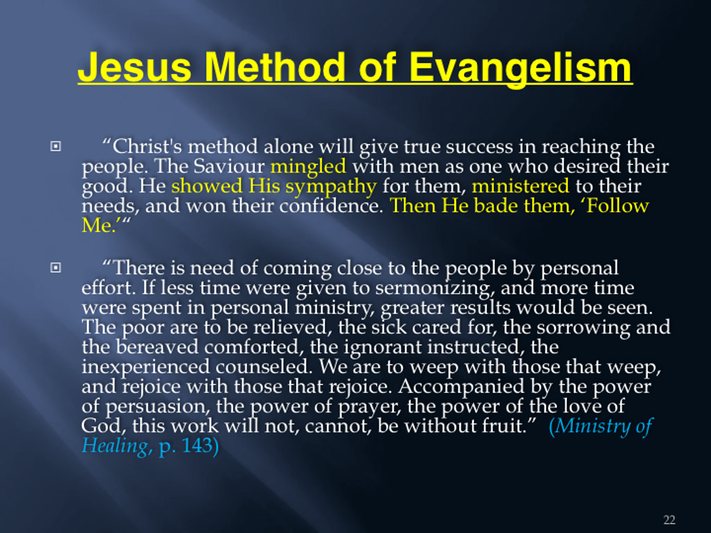
Sermonizing speaks more of one who talks about Christianity/religion but doesn't live it.
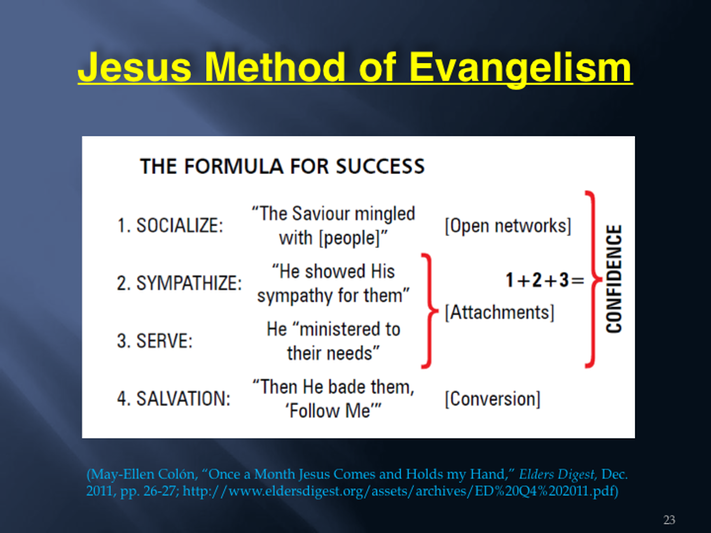
EGW’s statement broken down. Found this article after 1st weeks presentation.
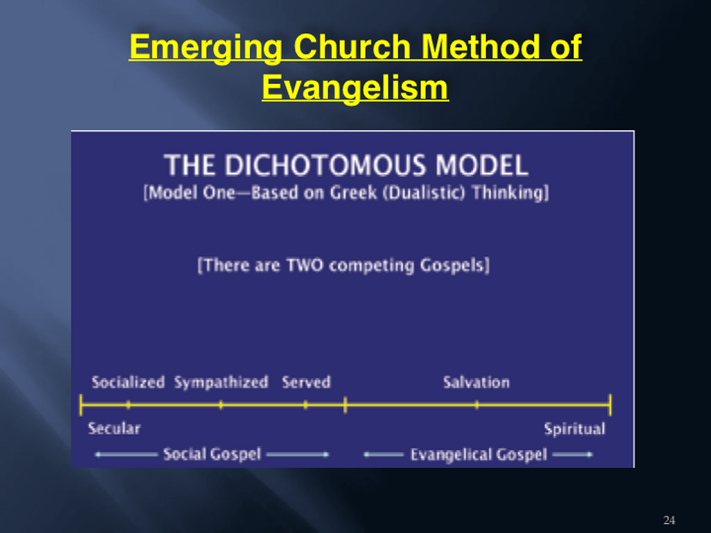
“The Dichotomous Model (above),” based on Greek Dualistic thinking, presents the steps in MH 143 as two competing Gospels: The “Social Gospel” and the “Everlasting Gospel” (not evangelical gospel). A mathematician would call this graph between the secular and the spiritual “inversely proportional.” This means that the closer you get to the everlasting gospel—spiritual end—the further you get from the social end, and vice versa.
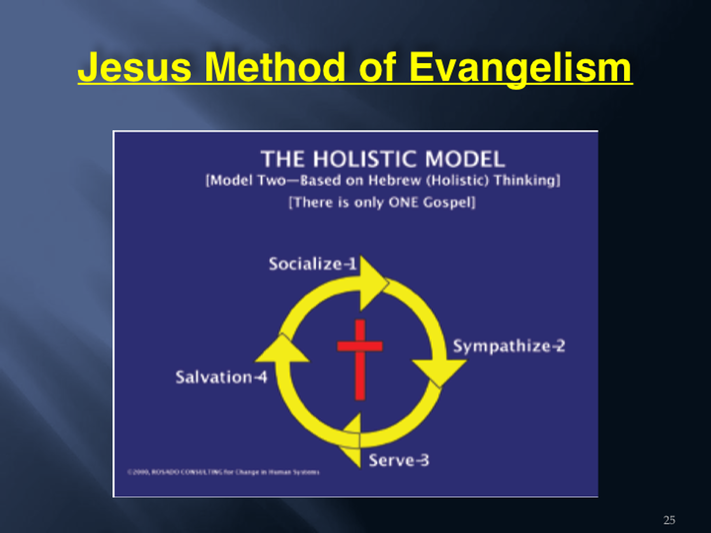
Jesus method was that all aspects of his ministry were centered around leading people to the cross. If people came to Him and asked outright what they must do to be saved (number 4) Jesus would tell them. If people where not open to His teachings right away He would spend time socializing, sympathizing and serving, with the purpose of opening up opportunities to lead them to salvation.
In our next presentation we will look at a leading spokesman for the Emerging Church movement—Leonard Sweet. Click here for presentation 2